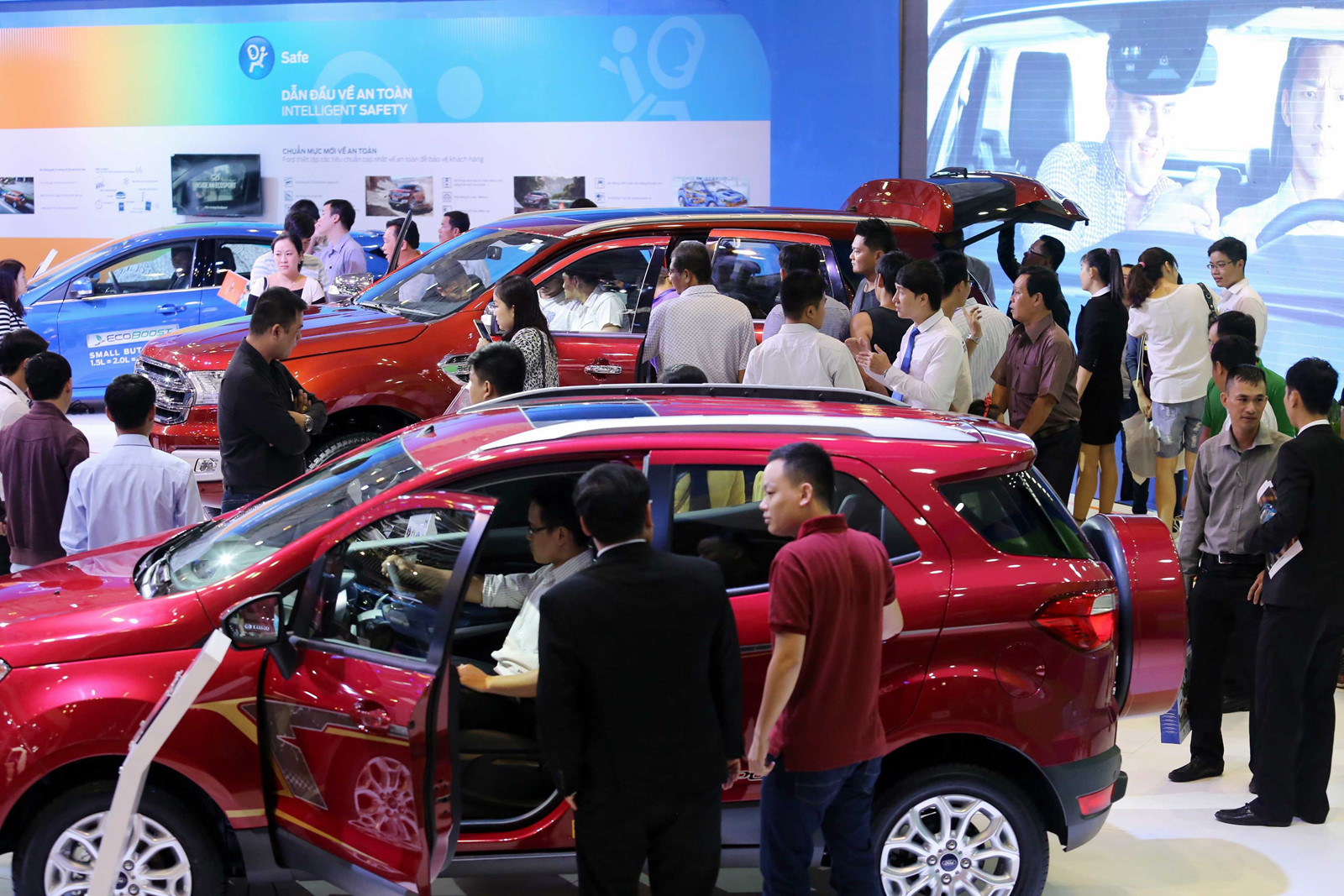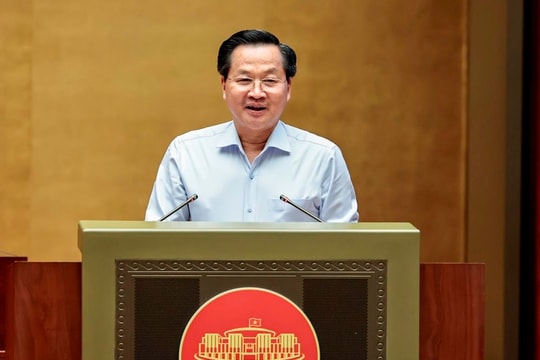What taxes and fees are cars bearing?
For the same car model, the selling price in the Vietnamese market is 3-4 times higher than in foreign countries.
 |
| Cars in Vietnam bear too many taxes and fees. PHOTO: D.LAP |
For example, a car that costs 20,000 USD abroad, imported to Vietnam can cost up to 60,000 USD or even higher. So what taxes and fees are the cars bearing?
Mr. Hoa - owner of a store specializing in importing high-end Toyota cars on Cong Hoa Street (Tan Binh District, Ho Chi Minh City), said that each car currently has to pay import tax (for imported cars), special consumption tax from 5 - 150%, value added tax of 10%, registration fee of 10 - 15% depending on the province, license plate fee (from 2 - 20 million VND), annual vehicle inspection fee, technical safety certificate fee, road use fee, road maintenance fee, civil liability insurance fee, fuel fee... Carrying so many taxes and fees like that, driving a car worth 1 - 2 billion VND in Vietnam is not necessarily a luxury car. It is just an expensive car.
According to statistics from the General Department of Customs, the number of imported cars in March reached the highest level since the beginning of the year, about 3,676 cars with a value of more than 84.6 million USD, accounting for 87% of the number of cars imported into Vietnam in the first quarter of 2018 (4,217 cars, worth more than 118.4 million USD). Of which, the largest number of imported cars came from the Thai market with 3,470 cars, worth 73.17 million USD, followed by Russia with 305 cars, China with 180 cars, Japan with 56 cars, Korea with 43 cars and the US with 39 cars...
The latest information is that by the end of 2019, the National Assembly's agenda has not yet included the Property Tax Law. The Ministry of Finance's request for public comments on the proposal to develop a Property Tax Law is in accordance with the provisions of the Law on Promulgation of Legal Documents. However, the above information also causes turmoil in the car market. According to experts, if property tax is applied to cars, the car market will be unequally competitive. Vietnamese people will have to pay more for non-luxury cars. Demand is pouring into low-priced cars but with high consumption, prices may not decrease any further.



